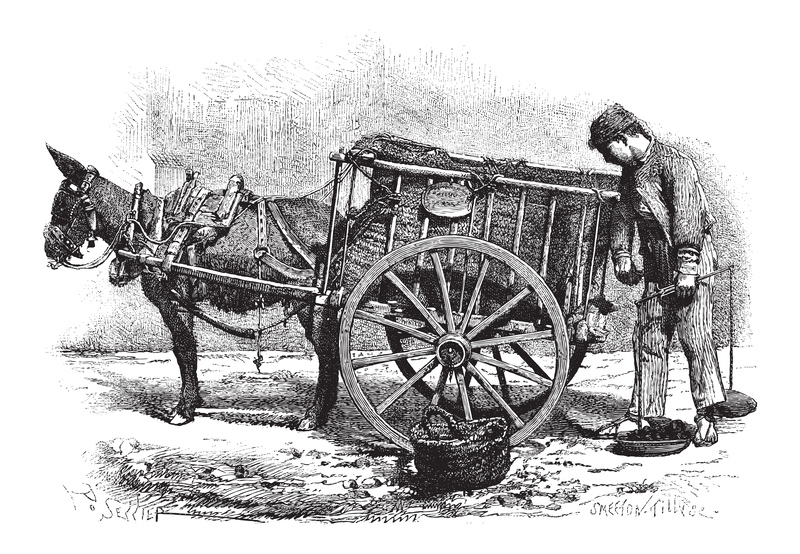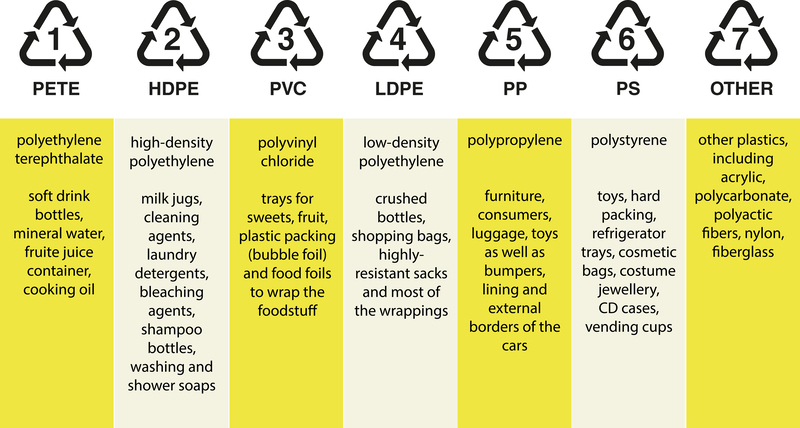Revitalize Your Recycling Routine at Home with Expert Tips
Is your home recycling routine feeling a bit stale or ineffective? You're not alone! Many households aspire to recycle diligently, but with ever-changing rules and mounting confusion over what can and can't go in the bin, recycling can lose its spark. Revitalizing your recycling routine not only supports the environment but also helps save resources, reduce landfill waste, and even conserve energy. In this comprehensive guide, we offer expert tips and fresh strategies to help you transform your home recycling efforts, making them more effective and rewarding.

Why Home Recycling Routines Matter
Before diving into practical recycling tips, let's explore why an organized recycling routine is essential in the modern household.
- Environmental Impact: Recycling reduces the need for raw materials, conserves precious natural resources, and lessens greenhouse gas emissions.
- Waste Diversion: A robust routine keeps materials like plastic, glass, paper, and metals out of landfills, where they can take centuries to decompose.
- Energy Savings: Recycling items like aluminum cans can save up to 95% of the energy required to produce new cans from raw materials.
- Community Benefits: Streamlined recycling supports municipal waste services, creates local jobs, and fosters a culture of sustainability.
Step Up Your Home Recycling: Fresh Approaches and Expert Suggestions
Ready to give your recycling approach a much-needed boost? These expert-backed strategies will help you go beyond the basics and make your recycling at home more efficient, enjoyable, and impactful.
1. Get to Know Local Recycling Guidelines
The first step in revitalizing your recycling routine is being crystal clear about what your recycling program accepts. Rules change over time, and not all communities process materials in the same way.
- Check the latest list: Visit your city or waste management website for up-to-date accepted and banned items.
- Print and display guidelines: Place reminders near your recycling bins for quick reference.
- Stay informed: Sign up for municipal recycling newsletters and alerts about any rule changes.
2. Rethink Your Sorting System
A revamped recycling routine starts with proper sorting. Use color-coded bins and clear labels to make recycling easier for everyone in the household--including kids and guests.
- Separate by material type: Designate specific bins for paper, plastics, metals, and glass where required.
- Keep them handy: Place bins in easy-to-reach places such as kitchens, offices, or garages.
- Use visual cues: Icons and infographics help children and visitors know what belongs where.
3. Clean and Prep Recyclables Correctly
Contaminated recyclables can ruin an entire batch. To optimize your home's recycling results, follow these expert tips:
- Rinse containers: Remove food residue from bottles, jars, and cans.
- Flatten boxes: Break down cardboard boxes to save space and ensure they're processed efficiently.
- Remove lids, caps, and pumps: Some sorting systems require these to be separated from bottles and jars.
4. Master the "What Not to Recycle" List
One of the top reasons recycling programs fail is because of "wishcycling"--placing non-recyclable items in the bin in hopes they'll get recycled.
- Educate yourself: Learn about items that can't be recycled curbside, like plastic bags, styrofoam, greasy pizza boxes, and electronics.
- Find alternatives: Many stores offer special drop-off locations for plastic bags, batteries, or electronics.
- Avoid contamination: When in doubt, check before you toss.
5. Reduce, Reuse, THEN Recycle
It's no secret that the old mantra--Reduce, Reuse, Recycle--puts recycling as the last resort. Whenever possible:
- Choose reusable alternatives: Use cloth bags, water bottles, and containers in place of single-use items.
- Repurpose creatively: Old jars become storage containers, cardboard boxes make great organizers, and newspapers can be used in crafts.
- Bulk purchases: Buying in bulk reduces packaging waste and typically uses less plastic per unit.
6. Compost Organics Whenever Possible
Food scraps and yard waste make up a significant portion of household trash. Many cities now offer composting services, but even if they don't, home composting is easier than you think!
- Start a compost bin: Use kitchen scraps like fruit peels, coffee grounds, and eggshells.
- Yard waste too: Grass clippings, leaves, and small branches are compostable.
- Result: You'll create nutrient-rich soil for your garden and send less organic waste to the landfill.
7. Get the Whole Household Involved
Recycling is more effective--and more likely to stick as a habit--when everyone participates.
- Assign roles: Even young children can help rinse containers or carry recyclables to the curb.
- Use incentives: Turn recycling into a game or establish family rewards for meeting waste reduction goals.
- Make it visible: Share progress with charts or visual reminders.
Advanced Home Recycling Strategies from the Experts
For those ready to take their home recycling routine to the next level, consider these extra steps inspired by environmental pros:
Don't Forget Electronics and Hazardous Waste
- Proper disposal is crucial: E-waste (computers, phones, batteries) and hazardous materials (paint, light bulbs, cleaning agents) should NEVER go in your regular recycling bin.
- Special events and facilities: Regularly check your city's website for special collection days or drop-off sites near you.
- Keep your home safe: Storing hazardous waste incorrectly can pose health risks. Always follow guidelines for disposal.
Choose and Buy Recycled Products
- Support the loop: Buying paper, plastic, and metal products made from recycled content amplifies the environmental impact of your efforts.
- Read labels: Look for the recycling symbol, and choose products with the highest post-consumer recycled content.
Install a Home Recycling Center
- Create a dedicated space: Install multiple, labeled containers, hooks for reusable bags, and a bin for special items (batteries, bulbs, etc.)
- Keep it tidy: An attractive, organized recycling center can encourage ongoing participation.
Get Creative: Upcycling and DIY Projects
Turn potential waste into treasures! Upcycling adds a creative dimension to your household recycling routine. Try these ideas:
- Jar herb gardens: Old glass jars make charming planters for herbs in your kitchen.
- Container storage: Shoe boxes and coffee tins become drawer organizers or craft bins.
- Decor from waste: Wine corks, bottle caps, and even broken tiles can be transformed into beautiful home decor.
How to Stay Motivated: Turn Recycling Into a Lifestyle
Even the best-laid home recycling plans can lose momentum over time. Here are some proven tips for staying inspired and making sustainable living a permanent part of your daily life:
- Track your progress: Note how much waste your family diverts each week or month and celebrate improvements.
- Set SMART goals: Make goals Specific, Measurable, Achievable, Relevant, and Time-bound. E.g., "Reduce landfill waste by 20% in three months."
- Get social: Join local or online communities dedicated to sustainability, share successes, and swap advice.
Common Myths About Recycling--Busted!
- Myth: "If it has the recycling symbol, it can always be recycled curbside."
Reality: Many products display the recycling symbol, but they may not be accepted in local programs (e.g., certain plastics, pizza boxes). - Myth: "Rinsing isn't necessary."
Reality: Food residues disrupt the recycling process and can ruin batches. Always rinse! - Myth: "All plastics are the same."
Reality: Only specific types of plastics are accepted in most programs. Check the numbers on the container and local guidelines.

Tools and Resources for Enhanced Recycling at Home
There are many tools and digital resources to make your household recycling journey smoother:
- Mobile apps: Try apps like "iRecycle," "Recycling Coach," or your local authority's app for up-to-date recycling advice.
- Official websites: U.S. EPA, Earth911, and local council sites are goldmines for recycling information.
- Educational videos: Platforms such as YouTube feature tutorials on sorting, composting, and upcycling.
Revitalize and Sustain: The Path to Smarter Home Recycling
Revitalizing your home recycling routine with expert tips isn't just about following rules--it's about fostering a sustainable mindset and making a real difference.
- Stay informed and up-to-date with local requirements.
- Invest in an organized, appealing recycling setup at home.
- Dedicate time to train everyone in your home on best practices.
- Be conscious of contamination and "wishcycling."
- Reduce and reuse before you recycle, whenever possible.
- Engage creatively through upcycling projects or composting.
Final Thoughts
Transforming your home recycling routine is achievable--and can even be enjoyable--with the right approach. Use these expert insights to keep your system efficient, your household informed, and your actions aligned with your environmental values. Small changes made today can have a positive impact for generations to come. Start revitalizing your recycling routine at home with these tips, and watch as your efforts ripple outward, inspiring others in your neighborhood and beyond!